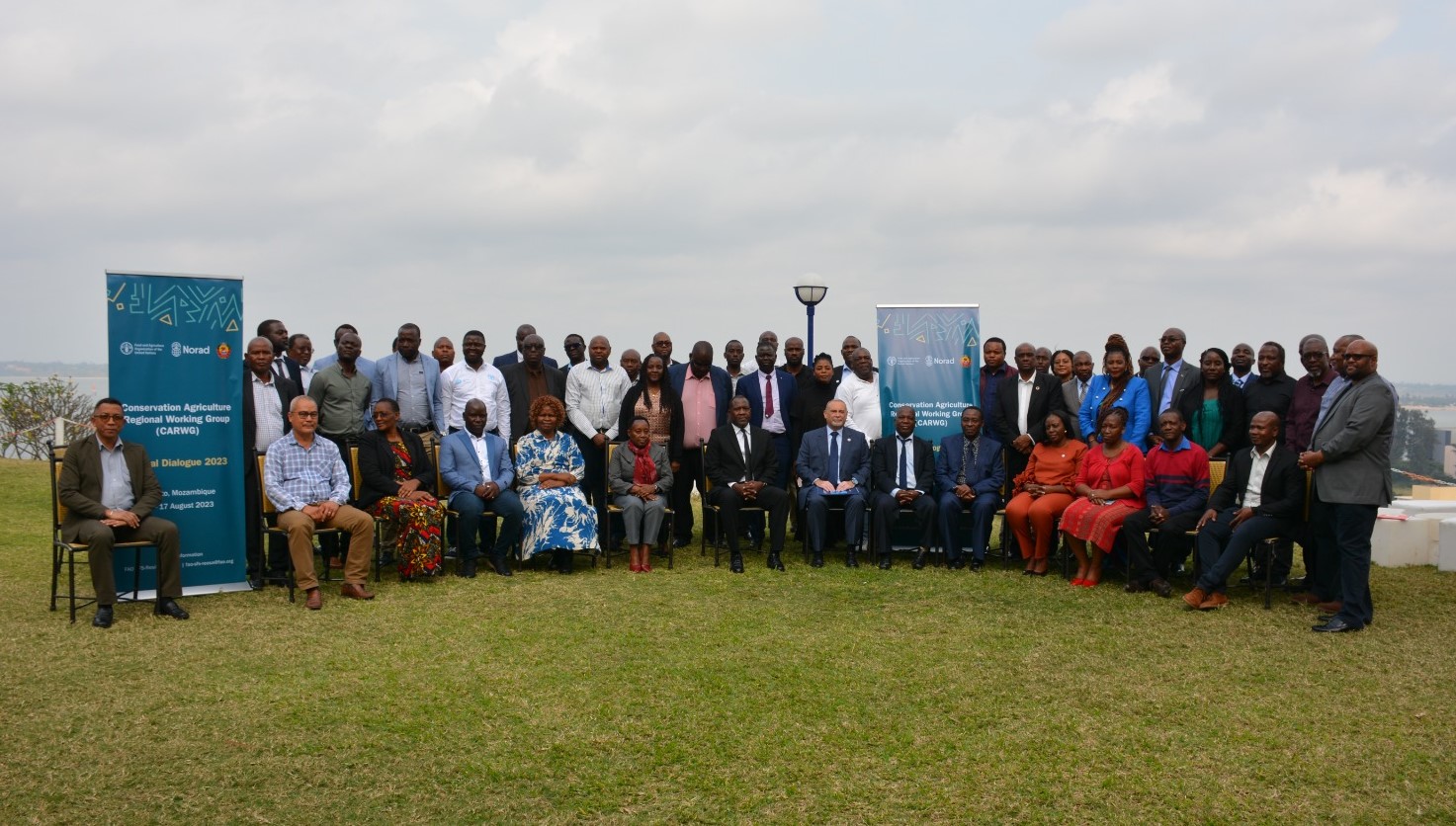Mechanization Key in Enhancing Conservation Agriculture Adoption

By Dorcas Kabuya
Conservation Agriculture (CA) has emerged as a promising solution for sustainable farming practices in Southern Africa, offering the potential to enhance productivity, soil health, and long-term environmental preservation. However, the widespread adoption of CA among smallholder farmers in the region faces several challenges. One key factor that could significantly speed up the uptake of CA is mechanization.
It is against this backdrop that the Food and Agriculture Organisation (FAO) and the Norwegian Agency for Development Cooperation (NORAD) working with stakeholders among them the Centre for Coordination of Agricultural Research and Development for Southern Africa (CCARDESA) convened the Conservation Agriculture Regional Working Group (CARWG) Meeting in Maputo, Mozambique.
The meeting was being held under the theme, ‘Climate Resilient Production through Mechanised Conservation Agriculture’ with the call to increase CA adoption by making CA mechanization equipment affordable for small-scale farmers in the region in line with the Malabo Declaration.
The objective of the meeting was to increase CA stakeholders’ access to the latest CA knowledge, best practices, and innovations for increased productivity, production, and climate resilience.
FAO Mozambique Country Representative, Jose Fernandez, echoed that the scaling-up of conservation Agriculture requires all partners in the region to work together.
Mr. Fernandez reminded regional agricultural bodies of the task given to them by the African Heads of State under the Malabo Declaration of ensuring that at least 25 million farmers are climate resilient by the year 2025. “As a climate change resilient approach, CA can contribute to the required production transformation in food systems, and lower production cost however, it is unfortunate that adoption levels among small-scale farmers still remain low,” he lamented.
Mr. Fernandez further added that the production and productivity of many small-scale farmers had been on the decline for many decades an issue which he described was of great concern as it translated into food and nutritional security in the region. “According to SADC, we currently have 57.5 million people who are food insecure in the region, when some years back the region stood at 14 million. This jump requires all stakeholders to address the challenges caused by climate change on food systems,” he urged.
It is a well-known fact mechanization, when properly integrated into CA practices, can serve as a powerful tool to overcome barriers and drive positive change in agricultural landscapes.
CCARDESA Executive Director, Professor Cliff Dlamini noted that his institution was greatly honored to participate in this important meeting and to contribute to the efforts of FAO and its partners in improving food and nutrition security in the region. Professor Dlamini re-echoed that women and youth form the majority of people involved in agriculture in the region and the focus of the meeting to address mechanization was very important because reducing the drudgery in agricultural operations was necessary. “High rural-to-urban migration particularly by the youth has left much of the farming in the region to be done by women, children, and the elderly thereby imposing a labour productivity constraint. This has negative implications for the attractiveness of CA especially if it is relying on human power as it is often the case with most smallholder farmers in the region, “he hinted.
The Executive Director further reiterated that the size of the area cultivated under CA by smallholder farmers was in part constrained by the limited mechanization employed in the CA chores affirming that exploring affordable mechanization solutions would go a long way in assisting these stakeholders. “Identification of challenges confronting the adoption of mechanization in CA is critical towards devising solutions. One way to improve the availability of CA equipment for smallholder farmers is to encourage, equip, and train local-level entrepreneurs to offer a CA mechanization service in their neighborhood,” he said.
Meanwhile, CARWG Chairperson, Engineer Saidi Mkomwa, noted that many challenges had caused continued stagnation and decline in agricultural mechanization in Africa adding that without investment in agricultural mechanization, it would be difficult to cultivate the 65 percent arable land in the region.
Engineer Mkomwa said there was a need to realize the long-term vision for mechanization in Africa based on the ten elements of the Framework for Sustainable Agricultural Mechanisation (F-SAMA) and retire the hoe to the museum. “While our focus must remain on the smallholder farmers, we stand a better chance of reaching and serving them with mechanised CA services by supporting them to access the services as opposed to owning the equipment by bringing on board the medium-scale farmers who have the capital resources and the business incentives to provide services to farmers,” Engineer Mkomwa suggested.
By addressing the challenges associated with traditional farming practices, mechanization paves the way for increased adoption of CA among smallholder farmers.
The author is an Agriculture Information Officer at the National Agricultural Information Services. She is also the CCARDESA Information, Communication, and Knowledge Management (ICKM) focal point person for Zambia
























































